cancer: the changeling and the magical girl
the outcasts rewrite the world / the cruel angel's thesis is of love
River head, gatekeeper head / Two of Cups — Venus, ruler of Cancer’s first decan:
This is a record to go against the official historical record stored in the village library on the star-bride. I leave here in its place an alternate history beyond facts, a story of the magical girl and the changeling she barreled into.
I had only been in the new village for 28 days before there was something for everyone to whisper about. She fell from the sky on the solstice, near the town astrologer's home, who took one look at her and knew, and it was this way that she was introduced to us at the festival. A time-turning celebration for a time-turning girl. I’m not surprised the astrologer knew immediately. We've seen plenty of star-brides before but she was mesmerizing. Exceptional. Wildly, devotedly, consumingly lunar.
The first time I saw her was at that festival. I'd heard about her like everyone else; she was the talk of the town. The whole village was smitten with her. But it was only by laying eyes on her that I registered how transparent her godhood was. It looked like the full moon had laughed herself into a human body: her enormous eyes, her round face, the lushness of her figure. And yes, there was the silver hair and the dimpling craters all over and the blue-black skin glittering with stars but that’s less relevant.
When our eyes met, my face grew hot. That itself isn’t new (we’ve all had crushes) but the extent of the magnetism was disorienting. All the swoony poet metaphors about feeling like a tide pulled by the moon swam into my head. I wheeled out of there along with the friend who had brought me and left as quickly as I could, flustered at how physical my response had been. A crush on a god? Yeah, me and everyone in all of history. I wanted to gag at my own predictability.
At first I chalked it up to her having gravitas (I was scrambling; give me a break). I've studied enough astronomy to realize people forget how powerful the moon is as a luminary, how it draws every eye to the sky, how it makes everything visible. She did the same to every room she entered (and she entered several because everyone threw a banquet and invited her to their homes). People sought proximity because of her glow and she allowed access freely, eager to befriend. She was curious, inquisitive, excited. Her generous faith in them restored their own faith in themselves. There was something vital, something life-giving about her. I wanted to guide her hand to a dead flower and see if it would bloom again under her touch.
(I also sign-blabbered something to my friend, something about how based on everyone’s obsession with the moon and its beauty, you'd think more astrologers would add cuteness to the moon's qualities. The moon gives cancers a charm offensive as a weapon, makes them sweet, makes them fond of beauty and care. People sighing over perfume counters, bakers and nurses all have the moon in common. I had a lot of rationalizations for wanting to randomly strike up a conversation about Mahsa ready but I let them go when I saw my friend’s lazy knowing smile).
Mahsa had an intuitive unparalleled wisdom for understanding people. Because most of my wisdom came from a self-disciplined isolated ascetic education, I was amused by how indulgent her way of study was when I watched her wander through the village every day, asking whatever questions she liked. I envied her: how welcome she felt, how welcome they made her feel1. I had learned by being subtractive, cutthroat. You had to be ruthless to rise and become an authority, to be respectable (Mahsa is more invested in goofiness because she doesn’t want to ‘get into a scammy bargain like respect where you just get fleeced’). When something wasn’t up to par, I discarded it. Isn’t mastery about sawing away, about utilizing time well by throwing the useless things over your shoulder so you could keep digging for gold? About saying no? Mahsa learned by saying yes to the world and it rushed her, buffeting her senses, similarly eager to be known and held by her.
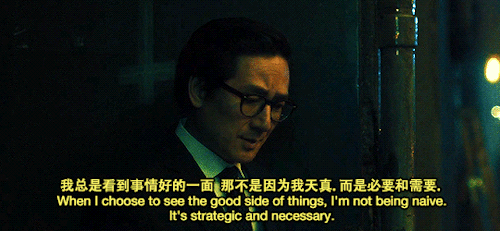
When I would mention it to her later, she would exclaim something about Jupiter exalting in Cancer. I saw it then too, that obsessive quality to how she loves: devotional, worshipful, tender. She loves like people pray. It was evident in how she threw herself into the project of belonging. Right now, she loves astrology so it's always on her mind. She's moved to tears when I bring her esoteric finds from the dingy bookshops.
(that mention was part of the first conversation we had. I studied what I had recently heard her chattering in the marketplace about and then sidled up to her the next day to sound like I was there purely out of intellectual interest and not lovestruck fascination. I even showed her how my walking stick could double as a scythe to help me in my new garden, dropping a mention to bring up later for a second meeting. Once I had interrogated her about her comparison of this village against her home society, I asked her if her charisma had ever made her consider being a revolutionary.
She said (SO CHEESILY AND TRANSPARENTLY), ‘Hmm, maybe I'd be a revolutionary if you were the cause I was fighting for,' and despite all my experience, I reddened, flustered, and laughed nervously, caught off guard by how she refused to be coy about it.

Good times. I had no idea how brazen she could get. That’s nothing compared to her current shamelessness.).
If this is what moon gods are like, the moon must be queer too. Is there anything as queer as longing? Is there anything more moonlike than that slow lazy hunger?
The same obsessive quality also makes her a bit of a hoarder but I can make the house bigger to keep up. I also don't own much myself so it evens out. Her greed is sweet to see. Every place she loves from is dear to me.

River body, bridge body / Three of Cups — Mercury, ruler of Cancer’s second decan:
I love so many things about Mahsa. The sun would burn out in the sky and everything on this earth would curl up and die before I’d be done with my list. But I love most about her is how much she loves her body, her aliveness, her physicality and because of it, how generously she loves mine. I love that if I vowed to follow her into war to prove my love, she’d just say she would crush everyone before I stepped foot into it. I love that she loves from a place of compassion. Not empathy, not familiarity.
I was born in the village run by priests, that we visited for her astrological talismans. I moved here to this new village when I was old enough to leave, so I guess you could say I’m in exile. Leaving is supposed to be unheard-of agonizing pain because it uproots you, separates you from your community, severs you from your past. But the one I was born in would have killed me through neglect if I hadn’t left. Like leaving did for Mahsa, all it did was liberate me.
What do religions that see living as punishment, life as a test, do to our relationships with our bodies? How do they make us see the world as a prison to endure and be liberated from, instead of the mother that keeps us alive?
They say life is a straight march from A to B, from dilemma to solution, from suffering to relief. But I saw a deity rooting in my farmer’s garden yesterday and she’s a force of change.2
I grew up a disabled girl, surrounded by bitter women and ableist neighbors. The women bemoaned their fates; they warned me that my anatomy would betray me, humiliate me, condemn me forever to men’s control (yeah, and it has nothing to do with the institutions they’re forcing me to participate in). Their relationships to their own bodies were based on shame and hatred, their femininity only an attempt to appear safe, meek and submissive to men — a reaction to demands and not a collective dream among many on how to inhabit a body. I was told to save my nurturing softness to comfort my husband, not to waste it on friends, pets or myself. Barter your care for protection.
They passed this imagination down to me, reminding me that a woman was only useful if she could labor and overcome her worthlessness through sacrifice and suffering, pushing me to resign myself to misery. Love was only one providing and the other being grateful to be chosen. Because I could never be of service, my aunts and cousins encouraged me to be grateful for all attention for men. Every single one was a potential suitor they could palm me off on so they could be relieved of their duty to me. Of course, I made it my life’s mission to become unlikeable, my own collective of one. Hostility was my defensive shield and it served me well but it’s difficult to contain now that I’m finally free and trying to construct a new community. And so much of community is about how likeable you are3.
My neighbors said I lived a half-life because I lived differently from them. Everyone was invested in wringing their hands over my body, be it for the love of biological essentialism or for the hatred of disability. Everyone‘s care was so demeaning and belittling that I found loneliness safer instead. I learned to care for myself so I wouldn’t have to beg.
Everyone admired how independent I had become4. They told me I was finally abled like them. Huh, guess ability was just a matter of not being able to rely on anyone else, not having the room to be human.

I shrank away from care because it meant dependence. Dependence meant abuse.
For a while, I believed them. I fought my girlhood, seeing it as a site of failure, a river that would carry me along to my doom down the treacherous waterfall that broke my neck: womanhood. It was a haunted place no girl ever came back from, where she lost her personhood to become a prop. Womanhood was where you went to become wanted, to forget how to want. I sloughed off my childhood in a hurry to hurtle towards adulthood and the power it promised me — autonomy over my body so it wouldn’t feel like a liability I lugged around with me, so it felt like a friend instead of an enemy.
Walking into the mountains at the fringe of the village until no one could see me, I’d read until dusk next to the river, lingering only long enough to see the moon rise and the dogs to begin howling before heading back so I could return before the curfew. The priests hated the night and her creatures, all the alien othered things like vampires, werewolves and shades. Everything that shifted. Everything that confused. They lived in constant fear of the outskirts and purged anyone within the village who was like those things: anyone with a secret, anyone with unnatural desires, anyone overwhelmed by the desires of — and for — the flesh.
I was coming into my own secret. Since I’d caught the virus, people told my family I’d probably been cursed or swapped with a changeling. Surprising how many creative ways people can find to call something defunct because it doesn't fit. But look at me now; I’m really a shapeshifter. Those years watched me grow outside of gender and sexuality, beyond the form of language and the snare of marriage. I was becoming the same unpredictable terrifying force in my stories, beyond the vise-grip of domesticity. The mountains watched me mutate into something wildly free, something hedonistic and Babylonian — more ancient than men and their gods.
The most feral you can be is the hopeful kind. I was scavenging for a way out, to a land beyond the riverbend that let my body flame with desire.
Back then, I was still greedy so I read everything I could get my hands on. The angrier it made the priests, the more it tempted me. At that time, nothing aggravated them more than the ‘shameless! naked! girls!’ they sputtered about in their sermons (I could hear them all the way by my window every week, where I sat with a notepad to write down their recommendations). That’s how I picked up my first mahou shoujo manga.
Those shameless girls were magical girls who transformed to fight, who wore form-fitting skirts unlike the shapeless shroud my aunts stitched to hide my disabilities. The girls embodied both strength and beauty. You can imagine how radical it was for me to see that beauty didn’t have to be defanged and declawed to be considered beauty, to see a relationship to a body rooted in delight, to see a body that didn’t slouch or fold to shrink itself. To see a body that didn’t have to stay at home because she was a girl or she was disabled and no one could be bothered to listen to her on how to help her travel.
In her determination to put pleasure and joy above everything, I saw a relationship to femininity that moved me to tears from envy. What a miracle: to let the body want what it wanted, without shaming it for frivolity. What a miracle to let a young girl love and long5, to dream from inside her body instead of relying on her imagination to free her from the grief of embodiment. I'd lived in my head for years because the earth had no room for me and my humanity. After patient waiting, I'd been rewarded with a vision of another way of being, to return to mortality without bitterness or resignation. Here was a femininity built in the joy of rule-breaking, a femininity devoted to hoping, dreaming, longing, a femininity with endlessly expanding horizons instead of powerlessness and entrapment. Finally, something beyond shame and defeat, the resignation, something beyond the secret self-loathing, the revelry in your own destruction. Maybe I could embody a femininity that refused to see the body as a cage of gender, that instead claimed it as a site of meaning-making, myth-making, story-telling that rewrote the world to be kinder.
The magical girls always fought in a group and relied on friendship to win battles. A common trope for magical girl stories is for the protagonist to have a group of sister-like friends who love her even when she's wrong and afraid and weak. When the world didn’t understand them, they understood each other. Their care wasn’t conditional or begrudging or malicious. They cared for each other because caring brought them closer, because dependence paved the road for trust and love. The more they knew about each other’s bodies and abilities, the greater their intimacy. The act and process of care was itself a joy because nurturing was rewarding in itself, not a chore.
When she was overwhelmed, she let her people contain her. She let containment be peace instead of imprisonment.
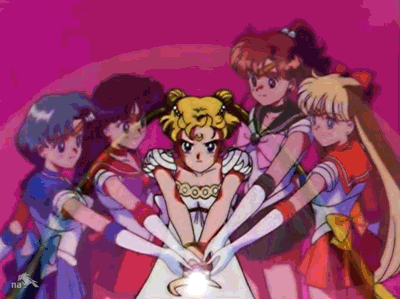
Of all the mangas I read, Sailor Moon stayed the longest with me, because she hated violence and fighting. Her justice insisted on healing. She broke down often from the burden of her knowledge and duty; she was openly (proudly) a coward but she kept going because there was no other way. She loved like she was compelled, like it wasn’t humiliating to be governed by your body, like it wasn’t disparaging to be limited.
You can imagine how it felt to watch a magical girl whirl into my own life, thrilled with mortality. Like the moon that hangs in the sky even when it doesn't catch the sun's light, she's here even when she's not. She doesn't need visibility to have presence. Mahsa loves keeping things alive. She thrives on coaxing the plant out of the soil, nurturing a stray into fatness, singing dough into a cake. She’s endlessly creative and generative. Where I absorb, where I slash away with my scythe, Mahsa clutters the world with life. She animates the earth, able to find its spirit with her own because she can reach out beyond borders.
(When I told her with tears in her eyes about how much she reminded of the magical girls that had held me together, she looked at me tenderly for a moment and then asked, ‘Are you exoticizing me?'
I flushed. ‘No, I would never do such—’
'I think it would be hot.'
I threw a pillow at her and howled about finding every astrology book in town and adding a note about the moon’s impishness. And then, of course, I kissed her).
She looks at things with not my mercurial nitpicking but with an acceptance. Before it’s recognized even itself, she has embraced its limits because she’s made peace with her own. When someone tells her to be burdened by humanity, she dismisses them. She’s excited about gently pushing against her limits instead of denying them, working with her body from a place of respect for its wisdom. I see it in her patience, her generous sense of time, in how she helps me dress on the days I’m too tired to. I see it in how she befriended everyone in the village and pulled me into the network, so now I have a rotating group of friends to go swimming with to relieve the ache in my legs.
Where I’m still wary because I’m new, she’s a placid lake — contained, unconcerned with the fear of humiliation and losing face, but aware of dignity. When someone irritates her, she is only frustrated, not furious, because she can separate her anger from a sense of control, able to express the ire without immediately wanting to fix the person or to boss her way into her comfort.
Every now and then, she'll start up from her task and come running into the forest to find me. Yesterday, it was her crowing, 'I know why Mars falls in Cancer!'. I almost startled off the bed in response. Breezily expecting it, she held out her arm and continued, 'A warrior (that’s Mars, by the way) who values their body will value the body of another too much to harm it. War requires the belief that he'll be immortal through his act of violence. He must believe it's okay to sacrifice his body and die because he'll live on in history. That's the Arian fire. But Cancer,' she continues, eyes shining, 'means a devotion to each other. There can be no room for harm when we're all connected. The suffering I cause you to protect myself will still be my suffering because we're bound together. Similar thing for Saturn; it's in detriment because Saturnian isolation and stoicism doesn't work when you need each other so much that your body betrays you and keens in its loneliness for others.'
Of course, I smiled and asked, 'Did you leave something on the stove to come tell me this?'
She was victorious when she announced, ‘Not this time!’ Then she confessed she’d already burned it and given up.
River feet, dreamwalker feet / Four of Cups — Moon, ruler of Cancer’s third decan:
What is this long journal entry/letter for? I guess it’s a treatise on everything new Mahsa has taught me about having a body. Saturn's detriment in Cancer teaches us how important a body is to being when we experience death. It's when someone you love passes away that you realize what a hole materiality leaves in its absence. I used to think love was about about praying someone you belong with dies before you so they never have to know the grief of a funeral. Mahsa cut me off. Her love is when both of you insisting on staying alive, knowing that the greatest revenge is to survive, that the greatest joy is love aliveness together.

Where I have always seen sacrifice as inevitable, Mahsa protests and insists we should fight for more for everyone. She trains as an apothecary now, giving everyone potions to change their bodies, expanding their imaginations by giving them the right tools to dream bigger. Into a man, into a woman, into neither, into everything, into animal. She helps them shift their forms to come closer to their truer natures, arguing, 'If the body has always been in flux in time, why not in form too?'
Mars is good at picking fights but in Cancer, it only knows how to defend others, not itself. Cancer is the sign of defensiveness and protection but war is about sabotage — attacking before you’re attacked, not safety and protection.
Sometimes, I look at Mahsa’s selflessness and think of how lunar children might be afraid of alienating others by choosing to shine. As a luminary, its destiny is to light up the night sky but it's scary for a Cancer to choose themselves. They’re afraid it’ll drive away their community.
My old friends tell me the priests in the village are muttering angrily about Mahsa, furious at her existence because she is exactly what they want to disprove. The priests want the world to be ruined, to burn to ashes, so they emerge victorious; they’re creating the conditions for the apocalypse, accelerating to the end and using every collapse to radicalize more people. The only wrench in the works is Mahsa and her indefatigable hope.
They are terrified she will encourage heresy and bring people back to protecting the earth. Imagine a god so in love with mortality that they gave up divinity for it. Imagine a girl so defensive of the earth, so staunchly against its disrespect and neglect. Imagine a girl so easy to love because she speaks from a place of compassion.
So here I am, writing Mahsa into history. Nothing will spite the gatekeeper priests more, who derive so much of their power by monopolizing knowledge and literacy, who decide our values and beliefs. I will put her into the heart of the world so, as long as this earth is alive, everyone inherits Mahsa's longing, Mahsa's memories, Mahsa's desire to nurture and grow. This is my version of caring for her: I put her inside her own version of time, in the stories she loves, so she may live on as a shifting changing idea. I will make folk-songs, plays, campfire dances.
As we live, Mahsa will do her work, undisturbed by the rage of despots. I will ensure that her memory prospers forever, that she is defiant to the end in her full humanity: in her desire, her silliness, her prowess. May you love her as much as I do. May you see the same revolutionary potential in her vision that I do.
We are beloved of sin, better for sin. The holy and the pure can keep their martyrdom. We are the water new worlds and philosophies rise from, the river that feeds the civilization that then turns its nose up at worshipping something so primitive and small, something they accuse of lacking sentience.

History may move in circles but the river is never the same because it’s both time itself and beyond it. The river has a longer memory than you ever will. Your ideas and your god are born in its silt.
book with me at @ranniazorya or by emailing me at ranniazorya@gmail.com. I offer basic birth chart overviews (you can choose the question), profection year consultations, 3-month transit breakdowns (based on your chart) and tarot readings.
Author’s note:
Communal care is joining a trade union, participating in mutual aid, agitating for environmental protection. It's donating money for someone's education, to a public library, crowdsourcing someone's bills.
One win makes a win for every cause easier. You don't have to like people to care for them. Compassion is not dependent on personal closeness. It just needs you to see another person as human. Hate will encourage you to erase someone's humanity.
I don't really think of the first house as what you're destined to be but as what your environment allowed — or encouraged — you to be. With Cancer risings, I see a cultivation of compassion, an understanding of vulnerability. Because the moon governs the physical form, they grow up connected to every form around them. I see them in the children who cry all day when a tree in the neighborhood is cut down, who see no harm as necessary the way adults insist it is, who approach strays fearlessly because they carry love to freely give away. But our world brands that as sensitivity, a trait useless and disposable to capitalism (and no, anxiety is not the same as sensitivity).
Cancer risings usually have stories of care: caring too much, being forced to participate in caregiving, struggling to accept care because they were told they weren't worthy or because the care was abusive. And under the broader mantle of care, they sacrifice their comfort. They grow to fear change because they believe it'll only bring something even worse. They hold onto their equilibrium with all their strength, even when it’s crumbling, when it would be better disrupted with cardinal intensity. They become the zombie kid story from It’s Okay to Not Be Okay (2020), both the children starving for warmth and the mothers who sacrifice endlessly and unsustainably, dooming everyone to collapse.
Cancer children, you are a site of the same hunger you see in the world, the same yearning for warmth, the same grief and loneliness. Tend to your appetite too. You can’t feed yourself just by feeding others.
I look to other houses and planets to understand what possibilities were denied by our environments. Cancer risings have a Gemini twelfth house and an investment in goodness they struggle to let go of. They're taught that safety is the only thing they can hope to have: not love, not acceptance. So they try to earn that safety by being good, by being safe for their peers. They're virtuous, attentive to others' needs, careful of vulnerability, protective of the defenseless. Because they understand harm so intimately, they strive to be morally perfect, never inflicting it.
Cancers desire security and stability. When they have that, they feel confident about everything. They can shine when they feel protected and looked after. You may be non-confrontational now because you don't feel like you can be honest about what you want. So you could avoid rejection and disappointment by not asking for it.
To accept that you contain multitudes means accepting that you've sometimes committed harm and to atone without shame. But it also means understanding that you're not supposed to be other people's moral compass. You cannot earn safety by appealing to your oppressors because goodness is a myth. You will never be virtuous enough to be the exception to a society built on suffering. You could be useful in your care and service but still be disposable. You're trying to build your home in a warzone.
Cancer risings often try to offer care to resistant people by being likeable, so their care will be accepted. They're taught to make themselves non-threatening. I see the Gemini 12h and wonder: would it really be so bad to finally be an irresponsible reckless brat? Wouldn't it be freeing to be your local trickster god, to be the gossiping cackling busybody instead of the neighborhood saint, to be the hoarding goblin instead of the sacrificial angel? And what about the day when you realize you don't always to be the nurturer or the mother? What about the day when you realize you shouldn't just be dispensing compassion but yelling loudly to get some back from everyone, so you can finally be free to be a menace without fearing that you'll lose the little support you get?
Cancer care cannot only stop at defending and protecting; putting all the burden on yourself to lead means you must amass power all your life to defend only a handful because no amount of power can stretch far enough. Look at the Aries midheaven; at some point, you have to start stirring shit up and instigating to get things to change. Someday you'll run into someone too powerful to be reasoned with. You have to actually enter into equal partnership with others and let them defend you. You must organize as a collective, not as many under the care of one.
Be selective about the community you work with. Trying to enter into reciprocal care with the powerful doesn't work; they can buy care. They'll never enter into a relation where they're equal to someone, let alone dependent. If you're being betrayed, look at the people you're asking to care for you. Have they cared a day in their lives?
It's the underclass who understands care, who sees how being likeable means conforming to the status quo. Be with people who will let you embody your pedantic poltergeist multitudes without threatening to revoke care, who don’t weaponize care to civilize you into something useful to their mission.
***
most of the disability justice I am still learning about — and my hopeful visions of the future — comes from black women, disabled black people and black queer people. most of my understanding of gender and sexuality comes from them. I am forever indebted and in solidarity with black people.
the more I see us be ableist and self-hating towards our bodies, cursing them for feeling pain, the more dangerous I find it to bind womanhood to a thing as defeatist as unrewarding endurance. first off, it’s unbelievably reductive to use these talking points and boil womanhood down to biology. it’s better to admit you don’t have the tools to understand your pain than to enable this kind of thinking. second, there’s a massive psychological and social cost to promoting the idea that a ‘woman’s body’ (as if there’s one type of a woman’s body) is somehow out to betray her because of cosmic ordinance. your uterus isn’t gendered; if you don’t think your eye is hurting you because it’s a woman’s eye, how does your uterus cramping confirm the supposed wretchedness of womanhood? it says we think of womanhood as pain and we seek confirmation for that reality, rooting our identities in it until we start keeping trans women out because we think they haven’t suffered enough.
it encourages women to believe they will always live a half-life because of anatomy and to never fight for justice in their social systems. she’s encouraged to isolate and bear it alone than to find communities to produce knowledge together in their vacuum. I’m still reading to understand how destructive the ‘a woman is bound to suffer/I wish I had never been born a woman’ line of thinking is. I know it’s cissexist but we haven’t yet fully understood this intersection of trans-misogyny and ableism and how all of us contribute to it every day.
“What does it mean to shift our ideas of access and care (whether it’s disability, childcare, economic access, or many more) from an individual chore, an unfortunate cost of having an unfortunate body, to a collective responsibility that’s maybe even deeply joyful?
What does it mean for our movements? Our communities/fam? Ourselves and our own lived experience of disability and chronic illness?
What does it mean to wrestle with these ideas of softness and strength, vulnerability, pride, asking for help, and not—all of which are so deeply raced and classed and gendered?” - pg. 17, Care Work by Leah Lakshmi Piepzna-Samarasinha.
“All that you touch. You Change. All that you Change Changes you. The only lasting truth is Change. God is Change.” - Octavia Butler
“I think about the ways Loree’s willingness to offer emotional caregiving to her care shifters, her whiteness and extroversion and neurotypicality are factors that aid her in being able to access an abundance of care—factors not available to everyone.
I also think about the people I know who want and need the distance of having someone they don’t know care for them. As a wheelchair-using, physically disabled Black femme friend of mine remarked to me, “I’m glad Loree’s model works for her, but if someone drops me, if someone doesn’t show up for a shift, I can die. I don’t ever want to depend on being liked or loved by the community for the right to shit in my toilet when I want to.” — pg. 22, Care Work by Leah Lakshmi Piepzna-Samarasinha
“In Loree’s care collective, her need for access is posited as something she both needs and deserves, and as a chance to build community, hang out with Loree, and have fun—not as a chore. This is drastically different from most ways care is thought of in the world, as an isolated, begrudgingly done task that is never a site of pleasure, joy, or community building.” - pg. 22, Care Work by Leah Lakshmi Piepzna-Samarasinha.
“In direct contrast to the American heroines Samantha and Jeannie, however, whose strife arose from the antagonism between magic (as power) and the traditional gender role as wife or fiancée, the magical girl’s dilemma usually lies between female adulthood and the juvenile female stage prior to marriage, called sho¯jo. In other words, the magical girl narratives often revolve around the magical freedom of adolescence prior to the gendered stage of marriage and motherhood, suggesting the difficulty of imagining elements of power and defiance beyond the point of marriage. In fact, these programs were broadcast exactly when the rate of love-based marriage started to surpass that of miai (arranged marriage),4 which implies that the magical girl anime, founded on the strict ideological division between shojo and wife/mother, may have been an anxious reaction to the emergent phase of romance.” — Kumiko Saito, Magic, Shōjo, and Metamorphosis: Magical Girl Anime and the Challenges of Changing Gender Identities in Japanese Society
Zohal and Mahsa:
For Zohal, who is non-white and non-woman:





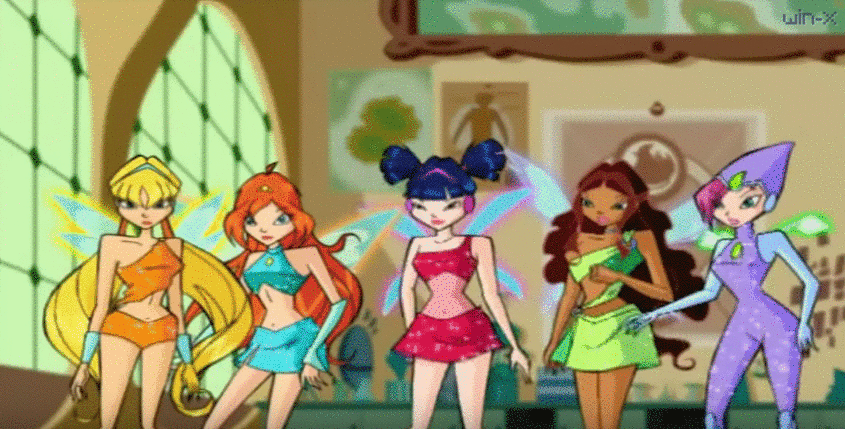
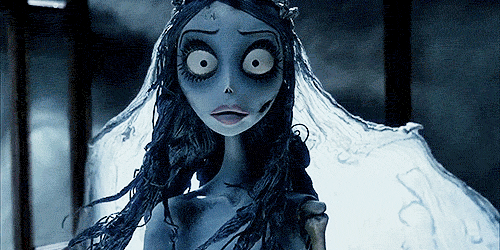

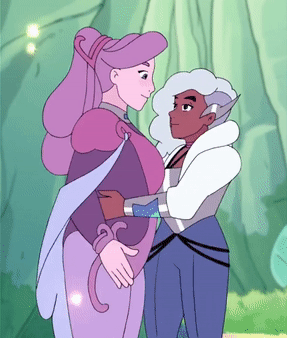


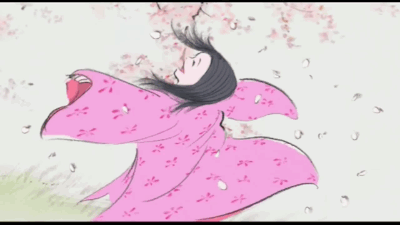

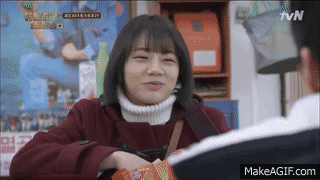
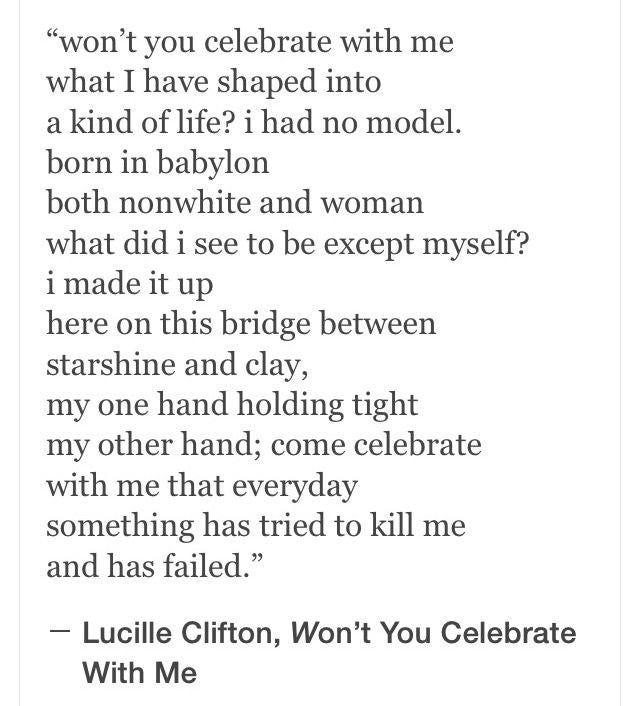
I'm so sorry but I'm not really familiar with astrology, but your writing is so so beautiful. I love Zohal and Mahsa's sweet relationship, how Zohal admires Mahsa's hope, and how you talk about community and caring for one another ): and I really enjoyed the sailor moon part too!!
Also, this "Be with people who will let you embody your pedantic poltergeist multitudes without threatening to revoke care, who don’t weaponize care to civilize you into something useful to their mission." was really something to ingest.
Thank you for your art, and your time spent into lovingly writing this, i loved reading it so much!! <3
Also, will check out the playlist hehe.